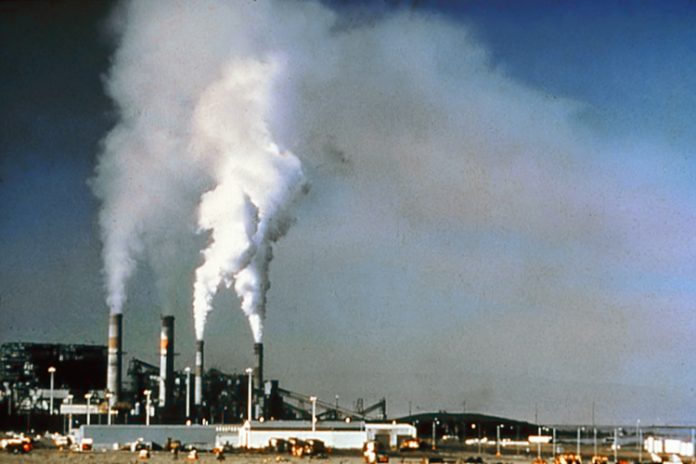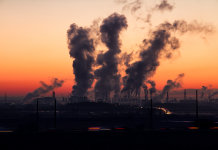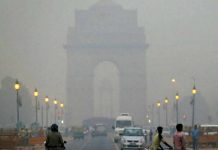This article is written by Shikha Pokhriyal, from Delhi Metropolitan Education, GGSIPU. This article talks about an initiative National Clean Air Programme taken by the government to reduce air pollution.
Table of Contents
Introduction
People living in India’s polluted cities, often go for a vacation to breathe clean good air in mountains or somewhere else but away from pollution. It is a fundamental right of an individual to live in a clean environment and breathe clean air. The Central Government in the year 2019 launched the National Clean Air Programme to reduce pollution by 20 to 30 percent. In this program, the government included 102 cities and aimed to reduce pollution in these cities by 2024. The National Clean Air Programme aimed at providing a basic framework to the states to tackle the problem of air pollution and accordingly that states can implement necessary policies. This program enacted by the Central Government is a long-term program that provides strategies to the states to deal with the problem of air pollution comprehensively.
This article shall deal with the program of National Clean Air, enacted by the government to reduce pollution and make the cities pollution-free. Also, we will explore various provisions and initiatives taken by the government to tackle the problem of pollution.
Air pollution and causes
Air pollution means contamination of air by releasing harmful and poisonous toxins into the environment. These harmful toxins affect the health of human beings, plants, and animals in a very serious way. These harmful and poisonous toxins that cause air pollution are known as air pollutants.
Despite enacting various initiatives by the Central Government and the State Government, air pollution keeps on increasing day by day causing harm to all living organisms. The Delhi State Government to reduce pollution started odd-even measures of personal vehicles so that air pollution can be prevented but this scheme also did not benefit in the long term. This increase in air pollution is causing early deaths. All the health problems like heart issues, cancer, diabetes, lung infection, asthma, etc are worsened because of air pollution also in pregnancy if a woman is exposed to a polluted environment for a long period, then the chances of a premature baby or giving birth to a baby becomes dangerous for the health of the mother.
Sources causing air pollution
- Burning of various materials: burning of woods or fossil fuels or any other man-made products to use for commercial purposes releases a lot of dangerous pollutants into the environment. Also burning of garbage and plastics also creates a lot of air pollution.
- Greenhouse gases: greenhouse gases trap the heat of the earth thereby increasing the temperature and causing a rise in sea level.
- Pollen and mold: pollen and mold from the plants are also carried away in the air that causes many skin allergies and other forms of irritation.
- Increase in vehicles: the cars, trucks, buses, release harmful particles that contaminate the air and harm health. Now in the modern times, everyone travels from their vehicle and because of this air pollution is rising day by day.
Various initiatives are taken by the government to combat pollution
India accounts for the majority of the populated cities in the world. The air quality of some cities of India has been ranked worse, therefore, making these cities dangerous for people living there. The air quality of cities like Delhi, Uttar Pradesh, and Haryana have always been on the verge of poor air quality. In Delhi often the government declares instructions regarding air pollution and gives cautionary advice to step out only if necessary or with masks. Especially after the festival of Diwali, the air quality is worse every year, and due to this many people lose their loved ones. In Delhi and Noida the air quality falls below and creates a situation of emergency. Even after the government prohibited the bursting of crackers, sellers still sell them illegally and people buy them, contributing to an increase in air pollution. To protect our environment and regulate the activities so that they do not harm the environment in any way legal provisions like the Water(Prevention and Control of Pollution) Act, 1974, the Air (Prevention and Control of Pollution) Act, 1981, the Environment Protection Act, 1986 were enacted.
The Central Government and the State governments have taken many steps to combat the problem of air pollution and make people aware of the things causing pollution.
Following are the initiatives are taken by the government to tackle air pollution:
- Air quality information: the government launched the SAMEER application where citizens will be able to check the Air Quality Index of the place they are at. This the application also enables an individual and gives a platform to register their complaints against air pollution. A person can collect information regarding air quality from a centralized location. The greater the number of air quality indexes, the higher the health risks. The air quality index consists of six categories like good, satisfactory, moderately polluted, poor, very poor, severe. The severity here means that the air quality is poor, that it will even affect healthy people and will worsen the situations for people suffering from heart or lung diseases and a person doing physical activity outdoors will also get affected.
- Use of social media: The government has provided a special feature to lodge complaints regarding pollution in social media like Facebook and Twitter. Also, the special corner is created in these social media to provide the users and make them aware of the air quality index.
- Encouraging masses to participate: The Ministry of Environment, Forest, and Climate Change is executing many programs to promote environmental education, awareness, and training measures among the various sections of the society and to motivate people to participate to conserve our environment by restricting the activities harming our environment. In the schools, Eco clubs are created under the National Green Corps program to educate the students on the importance of the environment and the need to save it. Measures like saving water, saving electricity, promoting the use of cycles, saving fuel and maintenance of vehicles on time, and planting more trees, are being promoted by the government to save the environment.
- The red light on, gaadi off campaign: Delhi Government to control the emission of pollutants by the vehicle introduced the campaign of red light on and car off, this means that the people are required to turn off their car when the traffic light is red and to promote this campaign many volunteers have been deployed at different traffic signals where they urge people to turn off their engine.
- Odd-even campaign: Delhi Government enacted an odd-even policy in the year 2016. In this scheme, private and non-commercial vehicles will be allowed on the road according to their number plates. For instance, if the number of vehicles ends with an odd number then they will be entitled to go out on roads on odd dates and vice versa.
- Pollution under control certificate: The pollution under control test determines that the emission from your vehicle is in control and also checks whether it follows standard pollution regulation.
The long term plan to tackle pollution – National Clean Air Programme
The National Clean Air Programme was launched by the Ministry of Environment, Forest, and Climate Change in the year 2019. This program is a five-year comprehensive action plan to reduce air pollution by 20%-30% by taking 2019 as the first year and 2017 as the base year. It is an initiative taken by the Central Government to frame universal guidelines for air quality time management with a time-bound reduction target.
This long-term five-year plan includes 102 non-attainment cities that were recommended by the Central Pollution Control Board (CPCB) based on the air quality of these cities between 2011 and 2015. The State Government, according to the conditions of the cities, will implement the action plans to monitor the emission from vehicles or emission by the industries and increase public awareness. The State Pollution Control Board (SPCB) and Central Pollution Control Board(CPCB) are accountable to monitor whether the states are applying required action plans or not. Air quality is also monitored by the SPCB and CPCB. The cities will be required to establish policies that will mix with the existing policies and programs like the National Action Plan on Climate Change and various other programs. The State and the Central Government will be required to work together and create or amend policies according to the situations.
While launching the National Clean Air Program Dr. Harsh Vardhan said “Overall objective of the NCAP is comprehensive mitigation actions for prevention, control and abatement of air pollution besides augmenting the air quality monitoring network across the country and strengthening the awareness and capacity building activities.” The National Clean Air Program aims to increase air monitoring stations even in rural areas and gives importance to technology.
Views of the National Green Tribunal (NGT)
The National Green Tribunal (NGT) is a body that was established to specifically deal with the cases regarding environmental protection and conservation of forests or other natural resources. The National Green Tribunal is under an obligation to dispose of the case within six months of filing the case. The NGT is not under an obligation to follow the Code of Civil Procedure but they are required to adhere to the rules of natural justice. The National Green Tribunal has the authority to provide compensation to the victims of pollution and other environmental issues.
According to the National Green Tribunal, the right to clean air is a fundamental right and comes under Article 21 and failure to reduce pollution is a denial of the right to life. In the year 2020, the NGT criticized the Ministry of Environment and Forest, when they submitted their reports on the National Clean Air Programme which stated that pollution will be reduced by 20 to 30 percent by the year 2024.
The National Green Tribunal stated that the goal of reducing pollution by 20 to percent by 2024 is unrealistic and not possible and also the view of the ministry is unconstitutional under Article 21. The NGT bench headed by Chairperson Justice Adarsh Kumar Goel said that considering the effects of pollution on health and keeping in mind Article 21 to breathe clean air, the Ministry should focus on increasing the percentage to reduce pollution in less period. This means that the timeline to reduce 20 to 30 percent pollution by 2024 should be reduced as it violates the five-year provisions of the right to life.
The bench of NGT said that enforcement of principles like Sustainable Development and Public Trust Doctrine was adopted to provide a mandate for international obligations and for that the Environment (Protection) Act 1986 and other laws were made. Under the National Clean Air Programme, the target is to achieve “target was to achieve norms in 10 years and reduce load to the extent of 35% in first three years with a further reduction of pollution later”.
The National Green Tribunal issued directions to the ministry to modify the guidelines of the National Clean Air Programme. The National Green tribunal suggested the following changes:
- It suggested the Ministry make the public aware of the electronic vehicles and shift to CNG vehicles, improving the fuel quality and enhancement of public parking facilities.
- It ordered the State Pollution Control Board to monitor the assessment and installation of the required air quality monitoring system within six months.
- The Tribunal also ordered the Central Pollution Control Board to frame a model to derive the source of pollution and the number of pollutants it contributes to the air.
- The target of reducing pollution should be increased.
Conclusion
The right to breathe clean air is every individual’s fundamental right and no one can deprive them of it. Pollution is a source of many health risks. The government has enacted many initiatives to curb air pollution. But without the participation of the mass, the aim to reduce pollution cannot be achieved. The need is to make more people aware of the severity of air pollution and health risks. The National Clean Air Programme can only achieve its target when the government implements the policy properly and ensures maximum participation. Climate change due to pollution is a serious concern and now it is high time to realize it and take appropriate action towards it. This fundamental right to breathe clean air can only be achieved when every individual fulfils their duty of not creating pollution.
References
- https://www.thehindu.com/sci-tech/energy-and-environment/all-you-need-to-know-about-national-clean-air-programme/article25969287.ece
- https://www.drishtiias.com/daily-updates/daily-news-analysis/national-clean-air-programme
LawSikho has created a telegram group for exchanging legal knowledge, referrals, and various opportunities. You can click on this link and join:
 Serato DJ Crack 2025Serato DJ PRO Crack
Serato DJ Crack 2025Serato DJ PRO Crack











 Allow notifications
Allow notifications


